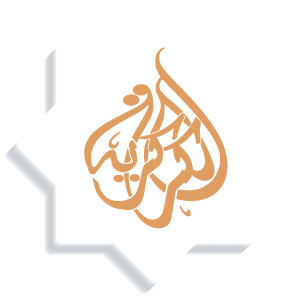بسم الله الرحمن الرحيم
و الصلاة و السلام على أشرف المرسلين
و على اله و اصحابه أجمعين
In the arabic language
We say in arabic “Raqqa’a athawb” which means “he patched his clothes”
Al Muraqqa’at is the plural form of the word “muraqqa’a” which refers to the clothes with colored pieces of tissue made of wool or fur or leather.
[Shaykh Ahmad ibn ‘Ajiba, al futuhat al ilahiya fi charhi l mabahithi al Asliya].
In the Tariqa Karkariya
It is the externalization and the way to be dressed by the the Beauty of the hidden Essence through the manifestation of the different divine names by the colors of a noble and high rainbow.
It is the sign of the pact between the ego (nafs) and the Spirit for the purpose of entering and ascending the different levels.
In the Holy Quran
“And when they tasted of the tree, their private parts became apparent to them, and they began to fasten together over themselves from the leaves of Paradise.”
[surah al ‘araf, verse 22].
“O children of Adam, We have bestowed upon you clothing to conceal your private parts and as adornment. But the clothing of righteousness – that is best.”
[surah al ‘araf, verse 26].
“O children of Adam, let not Satan tempt you as he removed your parents from Paradise, stripping them of their clothing to show them their private parts.”
[surah al ‘araf, verse 27].
“And it is He who has made the night for you as clothing and sleep [a means for] rest and has made the day a resurrection”
[surah al Furqan, verse 47].
In the Sunna
Narrated by Abu Burda: “‘Aisha brought out to us a patched wool Len garment, and she said: “(It chanced that) the soul of Allah’s Messenger ﷺ was taken away while he was wearing this.”
Abu-Burda added: “Aisha brought out to us a thick waist sheet like the ones made by the Yemenites, and also a garment of the type called Al-Mulabbada.”
[sahih Bukhari, 2894.].
Narrated by Um Khalid bint Khalid: “the Prophet ﷺ was given some clothes including a black Khamisa. The Prophet ﷺ said: “To whom shall we give this to wear?” The people kept silent whereupon the Prophet ﷺ said: “Fetch Um Khalid for me.” I (Um Khalid) was brought carried (as I was small girl at that time). The Prophet ﷺ took the Khamisa in his hands and made me wear it and said: “May you live so long that your dress will wear out and you will mend it many times.” On the Khamisa there were some green or pale designs (The Prophet ﷺ saw these designs) and said: “O Um Khalid! This is Sanah.” (Sanah in a Ethiopian word meaning beautiful).
[sahih Bukhari, 5425.].
The Prophet ﷺ was given some clothes including a black Khamisa. The Prophet ﷺ said: “To whom shall we give this to wear?” The people kept silent whereupon the Prophet ﷺ said: “Fetch Um Khalid for me.” I (Um Khalid) was brought carried (as I was small girl at that time). The Prophet ﷺ took the Khamisa in his hands and made me wear it and said: “May you live so long that your dress will wear out and you will mend it many times.” On the Khamisa there were some green or pale designs (The Prophet ﷺ saw these designs) and said, “O Um Khalid! This is Sanah.” (Sanah in a Ethiopian word meaning beautiful).
[sahih Bukhari, 5403.].
It was narrated from Mu’adh bin Jabal that the Messenger of Allah ﷺ said: “Shall I not tell you about the kings of Paradise?” I said: “Yes.” He said: “A weak and oppressed man who wears tattered clothes and is not paid any heed. If he swears (an oath) by Allah, Allah fulfills it.”
[Sunan ibn Majah, 4113.].
ibn Kiyssan reports:
“Abdullah ibn Abi ‘Umama relates that the Messenger of Allah ﷺ said: “Al badhadha is part of faith, al badhadha is part of faith, al badhadha is part of faith” and Abdullah says: “i asked my father: “what is al badhadha?” he answered: “it means wearing modest clothings”“.
[Imam Ahmad ibn Hanbal, zuhd 29].
Umm Khalid relates that the Prophet ﷺ came wearing a clothing with a patched fabric on it, and he said: “who could I dress with this clothing” all the companions became silent. Then Allah’s Messenger ﷺ said: “bring here Umm Khalid”. I came and he clothed me with his hand, then he said two times: “abli wa akhlaqi” while he was looking at the a yellow and red piece of tissue. He said: “O Umm Khalid, this is Sana”. (sana means “something good” in ethiopian language).
[Al Mustadrak ‘Ala Sahihayn, 2304.].



